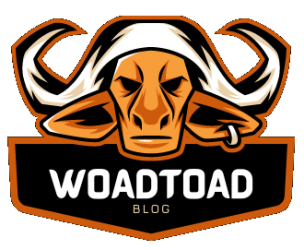If you own land in Texas—whether it’s rural, inherited, or sitting unused—you’ve probably wondered how to sell it without dealing with agents, listings, or long delays. The good news is: you don’t need to go through the traditional real estate process to get a fair price and a fast closing. Selling directly for cash is a streamlined alternative that’s built for simplicity.
But what does that actually look like? Here’s a step-by-step breakdown of what happens when you sell your Texas land to a direct cash buyer.
Step 1: You Submit Basic Property Info
The process starts with you providing a few key details about your land. Most cash buyers will ask for:
- County and parcel number
- Approximate acreage
- General location or GPS coordinates
- Ownership status (sole owner, joint heirs, etc.)
- Any known issues (access, liens, zoning)
You don’t need to have everything perfect. If you’re unsure about zoning or access, the buyer will usually research it for you. The goal is to get a clear picture of what you’re selling so they can evaluate it quickly.
Step 2: The Buyer Reviews and Makes an Offer
Once they have your property details, the buyer will assess the land based on location, market trends, and long-term potential. Unlike traditional buyers, cash buyers aren’t looking for development-ready lots. They’re comfortable with remote parcels, landlocked lots, and inherited properties.
After reviewing the property, they’ll make a cash offer. This is typically a no-obligation quote—meaning you’re free to accept, decline, or ask questions. A reputable buyer will explain how they arrived at the number and won’t pressure you to decide immediately.
Step 3: You Accept the Offer and Sign the Agreement
If you’re happy with the offer, the next step is signing a purchase agreement. This document outlines the terms of the sale, including:
- Purchase price
- Closing timeline
- Who pays closing costs (most cash buyers cover them)
- Any contingencies (usually minimal or none)
The agreement is straightforward and designed to protect both parties. You won’t need to hire a lawyer unless you want to, and the buyer will typically walk you through each section before you sign.

Step 4: Title Work and Closing Prep
After the agreement is signed, the buyer initiates the title process. They’ll work with a local title company or attorney to verify ownership, check for liens, and prepare the deed transfer. If your land is inherited or part of an estate, they may request probate documents or help resolve title issues.
This step usually takes 1–2 weeks, depending on the complexity of the title. You won’t need to do much—just respond to any requests for documentation and wait for the closing date.
Step 5: Closing and Payment
Once the title is clear, the buyer schedules the closing. This can be done remotely, in person, or via mobile notary—whatever works best for you. At closing, you’ll sign the deed and a few final documents. Then the buyer transfers payment, typically via wire or cashier’s check.
Most cash buyers pay on the same day as closing. There’s no waiting for bank approvals or buyer financing. You walk away with funds in hand and no further obligations.
What Makes This Process Different
Selling land the traditional way often involves:
- Hiring an agent
- Paying commissions
- Listing the property
- Waiting for buyer interest
- Negotiating terms
- Hoping the buyer’s financing goes through
When you sell land for cash, you skip all of that. You deal with one buyer, one agreement, and one closing. There are no inspections, no showings, and no surprises.
Why Texas Landowners Choose Cash Sales
Landowners across Texas are turning to cash buyers for a reason. Whether they’re offloading inherited parcels, rural acreage, or land they no longer use, the cash sale process offers:
- Speed: Closings in as little as 7–14 days
- Simplicity: Minimal paperwork and no agent involvement
- Certainty: No financing risks or buyer delays
- Convenience: Remote closings and flexible timelines
If you’ve been holding onto land that’s costing you money or no longer fits your plans, selling directly for cash is a practical way to move forward.
Conclusion
Selling land doesn’t have to be stressful. When you understand the process, you can make an informed decision with confidence. Direct cash buyers offer a clean, efficient alternative to traditional sales—especially for landowners dealing with remote, inherited, or unused parcels.
If you’re ready to explore a cash sale, start by gathering your property details and reaching out to a reputable buyer. The process is simpler than you think—and it might be the fastest way to turn your land into cash.
